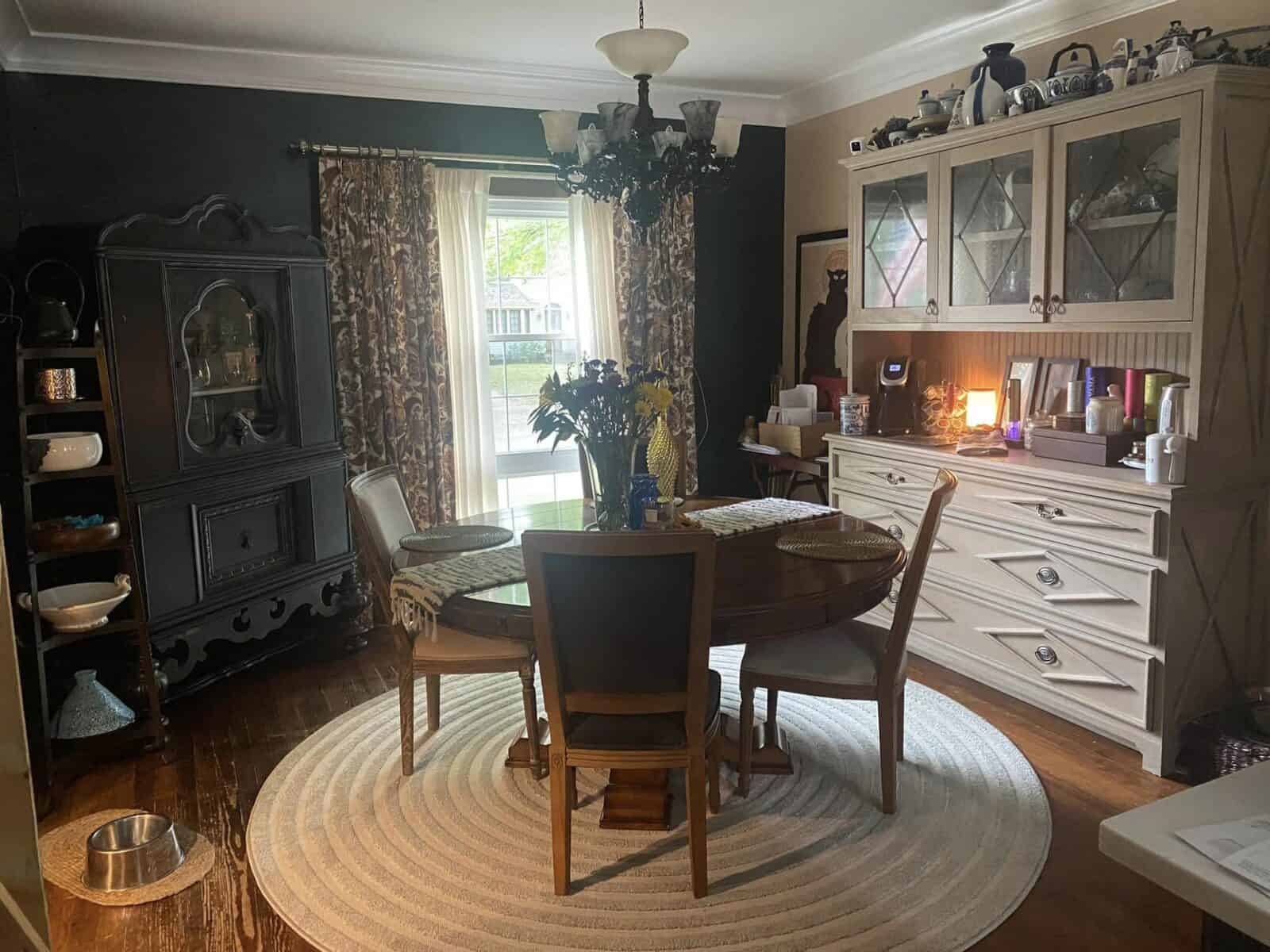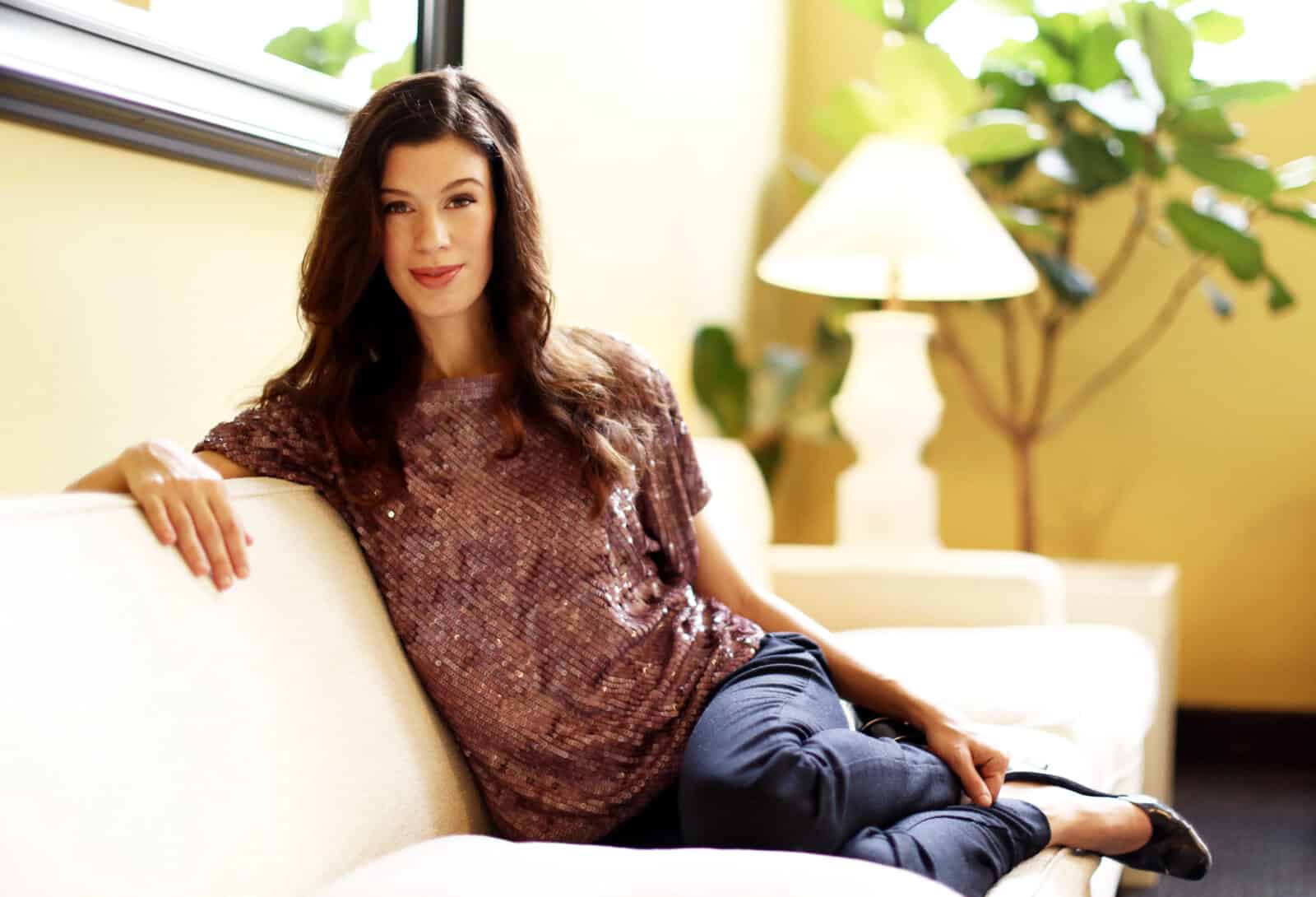If you’ve been through a breakup, you know it isn’t just about two people deciding to go their separate ways. It’s a division of everything you once shared as a couple – your home, assets, furniture, and any other belongings you acquired together. So what do you do when the ink has dried and you’re left with a new place to call your own? Making your space a reflection of your true self can have a profound impact on your personal well-being, even if you don’t have a large budget.
We spoke to three people who are closely linked to the concept of starting over after divorce – a divorcée, a divorce expert, and a modern feng shui master – about reclaiming one’s space after a split.
Divorcee converts her post-divorce home into a personal sanctuary
When Julia Benins, 33, divorced her husband of seven years, she found herself in a new (to her) home that she bought for a steal in a foreclosure sale. Finally, after spending the better part of a decade with a man who wouldn’t allow her to decorate her home the way she wanted, she was given the freedom to do exactly that.
“My marriage very much revolved around my ex. If we both liked a certain trinket or decoration, then everything was fine. But if I bought something that he didn’t like, I was criticized for spending the money and the joy I initially felt was completely taken away.”
That tiresome routine, played on repeat over the course of years, meant that when Julia was given a blank slate to decorate as she pleased, she didn’t know what to do.
“After so much time living like that, I didn’t even know what I liked anymore,” said Julia, a small business owner from Akron, Ohio.
It helped that her new house needed a lot of work, which meant that doing nothing wasn’t an option. She jumped into renovation mode and then began searching for treasures to personalize her space, embracing the fact that she no longer needed to worry about the consequences of coming home with items that made her happy.
“I began by picking out pieces that made me feel good. I didn’t think about whether they necessarily went together, and I didn’t care if other people didn’t like them,” said Julia, who was previously forced to live amongst her ex-husband’s rustic decor despite “not being a log cabin kind of gal.”

During the process, she discovered that she was a maximalist – a term used to describe decor that some may consider to be over-the-top, eclectic, or loud. Think of it as the minimalist’s most hated (but far more fun) distant cousin.
Much of Julia’s home is furnished with secondhand items, some from garbage piles in her neighborhood, proving that one person’s trash really is another person’s treasure.
“I enjoy the concept of giving something another chance, and I think that plays into my personal journey of not wanting to feel discarded or worthless after my divorce.”
Today, Julia’s home – which she shares with her fiancé, two dogs, and five cats – is an ode to bold colors, one-of-a-kind treasures, and an impressive collection of old books.
“It took years for me to reverse the mindset that I was going to get in trouble for buying something for my home. The day I realized I could do that without feeling sick was a great day.”
If there’s one word Julia would use to describe the feeling of decorating her own space on her own terms, it would be “empowerment.”
“No one else can take credit for the space I built. No one can say I only got those things because of their money, or their handyman skills. No one can rob me of what I created.”
Julia, who plans on tying the knot again in February 2024, has a few words of advice for anyone whose significant other tries to deny them of expressing themselves in their own home.
“Don’t let anyone enter your life who doesn’t allow you to keep the things that bring you joy. We all have to compromise sometimes, but nobody should come in and say that what you love doesn’t matter. Keep people around who love that you love those things.”
Find your happiness in home decor and self-expression
Author, licensed clinical therapist, and divorce expert Terry Gaspard is in agreement that a person’s home can have a direct impact on their happiness and well-being, and says that one of the main objectives following a split should be to reclaim your own living space.
“Spending some time thinking about redecorating is, in my opinion, part of the divorce recovery process. When a person makes a space of their own, they gain a sense of comfort and can enjoy an environment that’s more authentic to who they really are.”
Of course, not everyone has the cash to make their home look like it came straight from the pages of a magazine – and that’s perfectly fine, Gaspard said.
“You don’t have to buy brand new, expensive items. You just need to create a space that’s more in tune with the vibes you want to have in your home. Even small changes can really lift your spirits.”
Post-divorce changes can even be as simple as painting a few walls or donating items that are cluttering up your home. The best part is that you don’t have to negotiate with anyone or compromise your values during the process, Gaspard noted, recalling her own divorce experience.
“My ex-husband and I had very different tastes. I wanted a cozy classic home and he wanted something more modern. We didn’t get divorced because we had different preferences, but it did create tension whenever we would go shopping or talk about adding furniture to the kids’ rooms.”
After her divorce, Gaspard and her ex-husband both embraced their own personal styles and were happier for it.
“We don’t usually think of divorce as a positive thing, but there are opportunities that exist after divorce to reclaim yourself and the characteristics that make you unique.”

Feng shui your space and kick your ex to the curb
The term “feng shui” is often thrown around on HGTV, but few people truly understand what it means. Dana Claudat is a modern feng shui master who defines the practice as having a connection with the environment overall, including one’s home. She says that anything a person does to bring their own style, energy, and joy into a space will help them thrive.
“People think of feng shui as a set of rules or principles, but I think of it as a larger art and science of creating an optimal space for people to thrive and reach their highest level of self-actualization.”
In the context of divorce, Claudat believes a fresh start is key – but that doesn’t necessarily mean that everything you owned before your split has to end up in the aisles at Goodwill.
“The important thing is to reclaim the space as your own. Those who get amicably divorced may not feel the need to dispose of items they love. Others who are leaving a treacherous marriage may feel like a total fresh start is the way to go.”
Claudat says the first step is to ask yourself if you want to keep certain items or get rid of them. Any pieces worth keeping may benefit from “energy clearing,” which means you decide that you want something to be fresh and new and remove old energies from that object. Some people achieve this by burning incense, others may opt for deep cleans or other solutions.
“Energy clearing is a good practice for anyone to do, even if you’re in a happy relationship. When it comes to divorce, it’s a chance to clear out any parts of the old relationship that no longer serve you.”
However, don’t expect to take any shortcuts in the feng shui journey. You get back what you put in, according to Claudat.
“You have to work to bring the new things that you want out of life into your home, so you’re essentially creating the essence of what you want in your space.”
Claudat noted that while this work is important, it’s also vital not to rush the process – particularly if post-divorce grief or disbelief is clouding your ability to create a clear vision for your home.
“It’s helpful to begin with basic things like cleaning, organizing, and energy clearing. Then you can take on bigger steps when you’re ready.”






